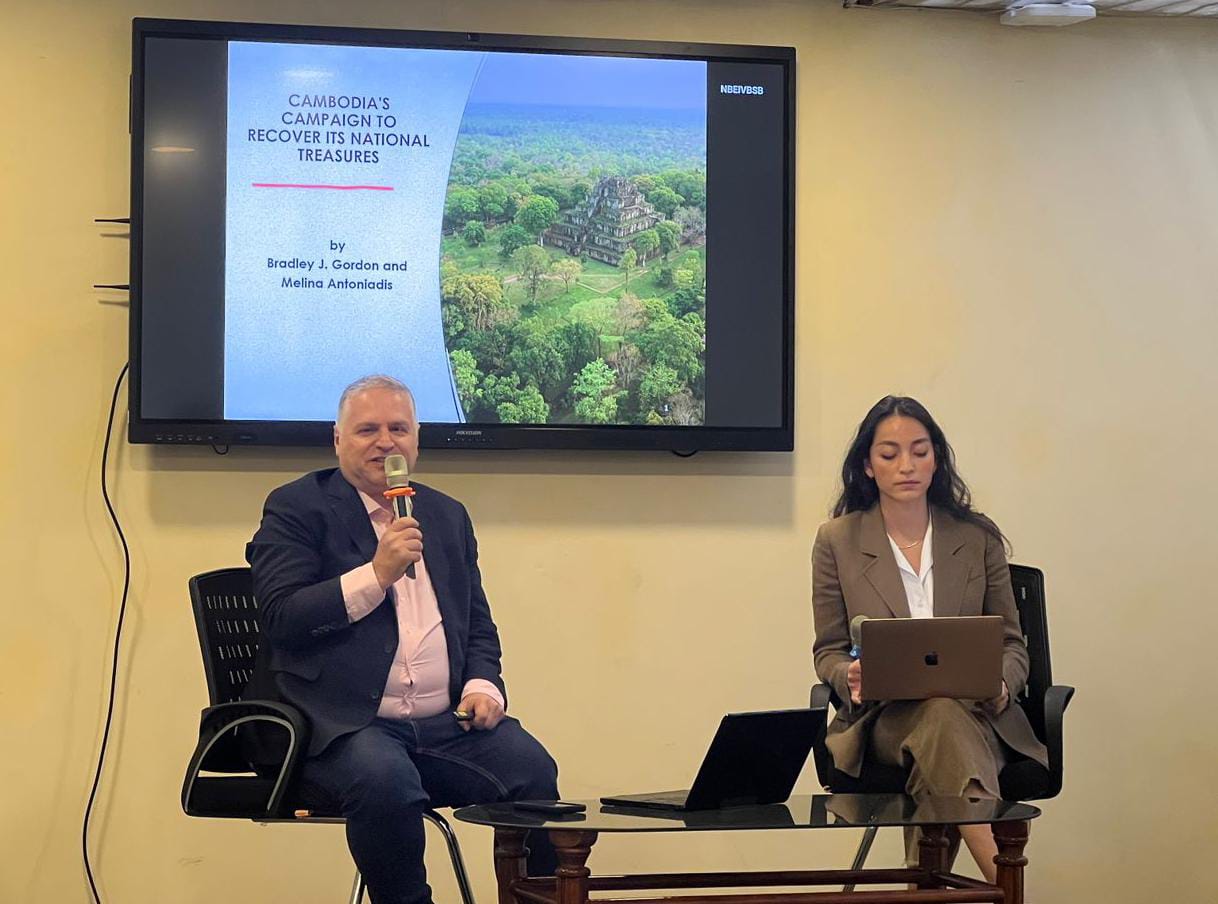On June 17th, the Sajha Southasia Centre hosted a conference that explored urgent issues surrounding cultural heritage. The discussions covered a wide range of topics, including the illegal trafficking of artifacts, strategies for their repatriation, and ways both governments and local communities can strengthen protection efforts. Experts highlighted the importance of international legal frameworks, the use of digital technologies, and the vulnerabilities heritage faces during times of crisis. A key message throughout the event was the crucial role that public awareness and media play in pushing for the return of stolen cultural assets and in safeguarding heritage for future generations.

June 17, 2025
Lalitpur, Nepal

Participants pose for a group photo during the International Conference on Recovery of Cultural Heritage, held at the Sajha Southasia Centre on June 17.
Photo: DevPulse/ Sakshyam Bhandari
The second day of the Sajha Southasia Centre conference focused on cultural heritage, repatriation, and the urgent need for collaborative action to preserve South Asia’s threatened legacy.
The day opened with a keynote by Dr. Amar Al-Azm, who addressed global trafficking networks and emphasized the need for stronger international coordination to combat the illicit trade of cultural artifacts.

Bradley J. Gordon presents on Cambodia’s efforts to recover its national treasures, alongside co-presenter Melina Antoniadis, during the International Conference on Recovery of Cultural Heritage
Photo: DevPulse/ Sakshyam Bhandari
Two parallel sessions continued the event, Session I explored “The Law of Return” and digital innovations in repatriation, highlighting legal frameworks, digital archiving, and data-driven efforts whereas Session II examined “Heritage at Risk in Times of Crisis,” discussing colonial impacts, conflict-related loss, and Nepal’s role in safeguarding intangible heritage
Bradley J. Gordon and Melina Antoniadis's lunchtime keynote showcased Cambodia’s landmark campaign to reclaim looted antiquities from major museums and private collections worldwide. The speakers detailed the country's legal strategies, diplomatic efforts, and media advocacy, offering a powerful model for how state-led initiatives can successfully recover stolen heritage and restore cultural pride.
In the afternoon, Session III focused on advocacy tools, the role of media, and “Living Culture: The Valley of Swongiga,” which explored the effects of looting on local traditions. Session IV addressed cultural property agreements and the challenges of protecting forgotten and vulnerable heritage beyond the Swongiga Valley.
The day concluded with a high-profile panel featuring Kunda Dixit, Erin L. Thompson, and Amar Al-Azm, who discussed the role of media and public opinion in tackling illicit trafficking.
The sessions underscored the need for legal reform, digital innovation, government commitment, and public engagement to protect and restore South Asia’s cultural heritage.

By sharing valuable information and sparking inspiration, we aim to foster growth, innovation and brighter opportunities for future generations.
Contact us